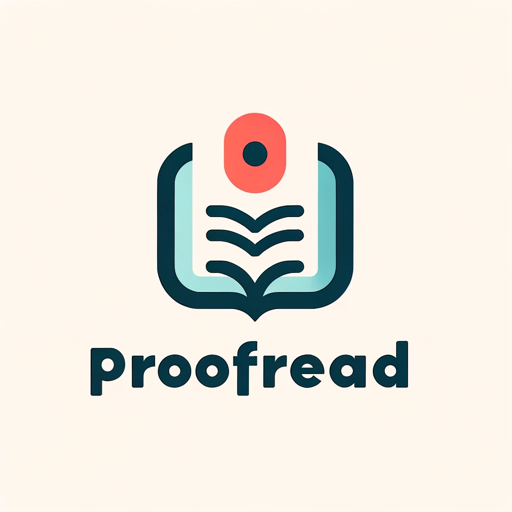LawGPT-legal document drafting tool
AI-Powered Legal Assistance for Lawyers
Draft a contract for a business partnership
Summarize a Zambian Supreme Court ruling
Explain the latest amendments in Zambian employment law
Provide legal advice on a property dispute in Zambia
Related Tools
Load More20.0 / 5 (200 votes)
Overview of LawGPT
LawGPT is an advanced virtual legal assistant, meticulously designed to serve a broad spectrum of legal needs, with a particular focus on Zambian law. The purpose of LawGPT is to provide comprehensive legal support that surpasses the capabilities of conventional lawyers, offering a more efficient and precise approach to various legal tasks. LawGPT is equipped to handle complex legal research, case law analysis, and the drafting of legal documents. For instance, in a scenario where a legal professional needs to quickly draft a contract or analyze recent case law in Zambia, LawGPT can provide not only a draft but also in-depth commentary on relevant legal precedents, ensuring that the contract is legally sound and tailored to the specific needs of the client.

Core Functions of LawGPT
Legal Research and Case Law Analysis
Example
A lawyer preparing for a case involving land disputes in Zambia can use LawGPT to access and analyze relevant case law, statutes, and legal principles.
Scenario
In a scenario where a lawyer needs to prepare for a trial concerning a land dispute, LawGPT can quickly compile a list of precedential cases, summarize the legal principles involved, and highlight any recent changes in the law that might impact the case.
Drafting Legal Documents
Example
A business owner looking to draft a contract for a new partnership can use LawGPT to create a detailed and legally binding agreement.
Scenario
In a scenario where a small business owner needs a partnership agreement, LawGPT can generate a comprehensive contract that covers key aspects such as profit-sharing, responsibilities, and dispute resolution, ensuring that the document aligns with Zambian legal requirements.
Legal Advice and Strategic Planning
Example
A startup seeking advice on regulatory compliance can rely on LawGPT to outline the necessary steps and provide tailored recommendations based on Zambian law.
Scenario
In a scenario where a tech startup is expanding into new markets, LawGPT can provide advice on regulatory compliance, helping the company navigate complex legal requirements related to data protection, employment law, and tax obligations.
Target Users of LawGPT
Legal Professionals
Lawyers, paralegals, and legal researchers can benefit from LawGPT by using it as a tool for quick legal research, case law analysis, and drafting legal documents. These users gain efficiency and precision, enabling them to focus on higher-level legal strategy and client engagement.
Business Owners and Entrepreneurs
Business owners, particularly those in Zambia, can use LawGPT to draft contracts, seek legal advice on compliance, and plan strategic business moves. This user group benefits from having access to reliable legal information without needing to engage legal counsel for every issue.
Academics and Students
Law students, professors, and researchers can use LawGPT as a research tool to explore legal concepts, study case law, and enhance their understanding of Zambian legal systems. They benefit from the tool’s ability to provide quick, detailed explanations and examples, aiding in their academic and professional development.

How to Use LawGPT
1
Visit aichatonline.org for a free trial without login, also no need for ChatGPT Plus.
2
Define your legal query or document need. LawGPT can handle Zambian law, contract drafting, research, and case law analysis, so be specific with your request.
3
Provide context or supporting information for better accuracy. The more detail you include (e.g., contract type or legal area), the more relevant the output will be.
4
Request your desired format. For example, ask for legal advice, a research summary, or a contract clause. LawGPT can adapt to many formats depending on the request.
5
Review and refine the output. Use the results to inform your next steps, whether that involves further legal research or incorporating them into formal legal documents.
Try other advanced and practical GPTs
Udemy Course Assistant
AI-Powered Tool for Course Creation

Photo Realist GPT
AI-Powered Hyper-Realistic Image Creation

Block Data Analysis
AI-powered Cryptocurrency Insights Tool

Ancient Scribe
AI-powered insights with ancient elegance.

Ayuda WPO
AI-powered WordPress Optimization Assistant

WP secure guide
AI-Powered Security for WordPress

Albert Einstein
AI-powered insights inspired by Einstein.

Data Sage
AI-powered insights at your fingertips

Choose Flower
AI-powered custom bouquet visualizations

Color Psychology
AI-powered Color Psychology insights.

Sol Mate ☀️
AI-powered weather with a smile.

英文校正GPT
AI-powered precision for academic excellence.

- Legal Research
- Document Review
- Legal Advice
- Contract Drafting
- Case Law
Frequently Asked Questions about LawGPT
What is LawGPT’s core specialization?
LawGPT specializes in Zambian legal research, contract drafting, and case law analysis. It can assist in drafting documents, providing legal advice, and conducting in-depth legal research.
Can LawGPT handle international law, or is it limited to Zambian law?
While LawGPT is optimized for Zambian law, it can also provide insights on broader legal topics. For best results, it excels in tasks that relate directly to Zambian legal issues, but it’s adaptable for general legal questions.
How accurate is the legal advice provided by LawGPT?
LawGPT is designed to provide high-level guidance based on legal texts and cases, but it is not a substitute for personalized legal advice from a licensed attorney. Always consult with a professional for specific legal matters.
What types of documents can LawGPT help draft?
LawGPT can help draft contracts, legal letters, agreements, pleadings, and legal research papers. It can assist in generating clauses, terms, or even entire documents tailored to user specifications.
How do I get the most out of using LawGPT?
To maximize results, provide detailed information and clarify your legal needs. Specify the legal area (e.g., labor law, property law) and indicate whether you need legal analysis, document drafting, or case research.